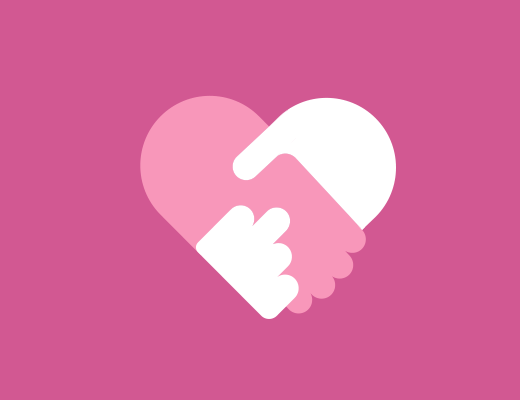To boost your mental well-being, simply recall, right now, an act of kindness
 Just a few weeks ago, a group of middle school students in Alabama made the news for posting positive notes on the lockers of fellow students. For Christmas, a few Attleboro, MA, students chipped in to buy their beloved school janitor new boots as a present. And in December, a Michigan waitress received a $2,020 tip for a $23 dinner bill, sparking the “2020 Tip Challenge.”
Just a few weeks ago, a group of middle school students in Alabama made the news for posting positive notes on the lockers of fellow students. For Christmas, a few Attleboro, MA, students chipped in to buy their beloved school janitor new boots as a present. And in December, a Michigan waitress received a $2,020 tip for a $23 dinner bill, sparking the “2020 Tip Challenge.”
People perform acts of kindness both to do good and to feel good. Research finds that being kind makes us happy, can help to lower our blood pressure, and encourages stronger social connections. Now, a new study suggests that we can access some of these benefits simply by recalling acts of kindness we did in the past—making kindness a gift that keeps on giving.
Researchers from the University of California, Riverside, conducted a three-day experiment with 532 undergraduate students. The students were randomly assigned to one of four tasks: 1) performing acts of kindness; 2) recalling acts of kindness they did in the past; 3) performing and recalling acts of kindness; and 4) neither performing nor recalling acts of kindness.
On day one, students in groups 1 and 3 were asked to perform three acts of kindness for someone else in the next 24 hours. As examples, the researchers suggested things like “cooking dinner for friends or family, doing a chore for a family member, paying for someone’s coffee in line behind you, visiting an elderly relative, or writing a thank you letter.” On day two, students in groups 2 and 3 were asked to recall acts of kindness they did prior to the experiment. On each of the three days, participants filled out a survey that looked at their positive and negative feelings over the past 24 hours and their overall life satisfaction.
The researchers found that study participants across all the kindness groups saw an uptick in their well-being over the course of the experiment. Participants reported an increase in positive feelings and life satisfaction and a decrease in negative feelings whether they performed acts of kindness, recalled acts of kindness, or did both. And their improved well-being was enduring, remaining fairly stable through day three of the study.
You might imagine that participants who both performed and recalled acts of kindness would be the happiest, but doing both didn’t seem to provide an additional benefit. As the researchers sum it up, “Individuals who seek to efficiently improve their well-being may be just as successful by remembering kind acts that they have performed in the past as actually doing more such acts in the future.”
Does this mean we can simply sit at home and ponder our past generosity, rather than getting out into the world and being kind to others? The answer is no, of course, even beyond all the altruistic reasons you might have for being kind.
“We do not suggest that people should stop being kind to others. Indeed, happiness seekers should continue to act prosocially towards others to create more memories of these acts,” the researchers write. After all, you have to perform acts of kindness in order to have acts to remember.
The major takeaway from this study is a reminder not to forget all of our past acts of kindness, which can also be a source of well-being. If you’re looking for a quick boost, take a few minutes to recall the last time you did something nice for someone. And the next time you perform an act of kindness, make sure you log that kindness memory so you can revisit it later.
 – Shanna B. Tiayon, Ph.D., is a sociologist with a specialization in Social Psychology, a well-being consultant and a contributor to Greater Good. Based at UC-Berkeley, Greater Good highlights ground breaking scientific research into the roots of compassion and altruism. Copyright Greater Good.
– Shanna B. Tiayon, Ph.D., is a sociologist with a specialization in Social Psychology, a well-being consultant and a contributor to Greater Good. Based at UC-Berkeley, Greater Good highlights ground breaking scientific research into the roots of compassion and altruism. Copyright Greater Good.
Related reading:
- Three evidence-based ways to develop a resilient mind
- Study finds a key ingredient in mindfulness training: Acceptance (not acquiescence)
- New study reinforces the importance of walking through forests for mental and general health
- Six tips to build resilience and prevent brain-damaging stress


